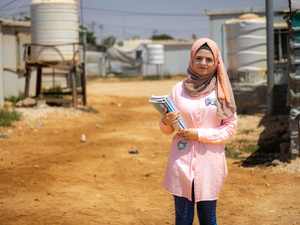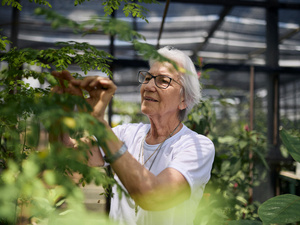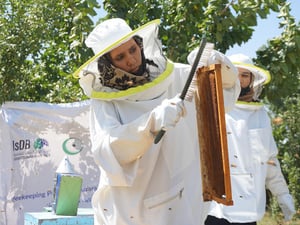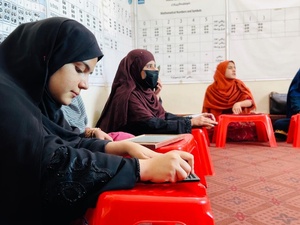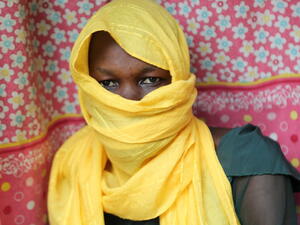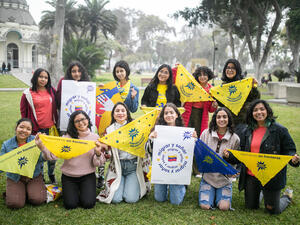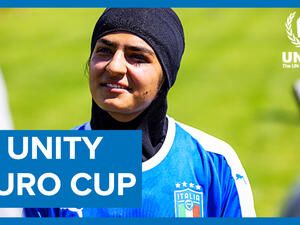International Women's Day: Colombia's displaced women tell of their suffering
International Women's Day: Colombia's displaced women tell of their suffering
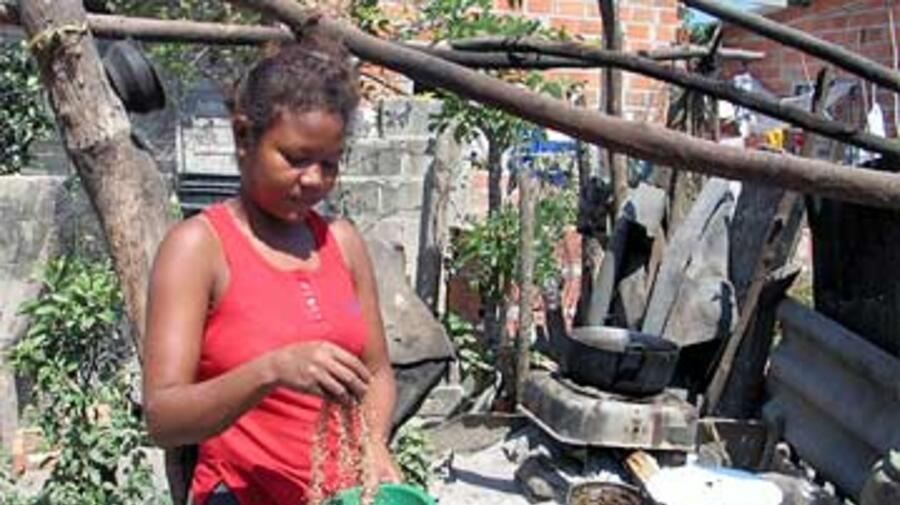
The Colombian conflict has displaced hundreds of thousands of women across the country. UNHCR seeks to raise awareness of their rights and to help them achieve self-reliance.
BOGOTA, Colombia, March 8 (UNHCR) - "My name is Marta [not her real name]. I come from a village close to a big river, where paramilitaries and guerrillas have been fighting for years. One day five canoes full of paramilitary fighters came down the river and stopped in our village. They went from house to house until they got the whole population gathered in one place. They took several people with them. We later saw their mutilated bodies floating down the river. Soon after that, the guerrillas came. They were looking for paramilitary collaborators. They accused my husband of helping the paramilitary. They had recruited my brother and told him that he had to kill my husband. My brother refused and they killed him instead. They came into my house looking for my husband but I managed to hide him. After that we fled to the city."
In the last 10 years, according to official figures, some 783,000 Colombian women and girls have had similar experiences to Marta's. Unofficial sources estimate that there are over a million and a half stories like this in Colombia.
In many cases, having to abandon their homes is not the first act of violence that internally displaced women suffer, nor the last. "Among us, there are women who have been raped, threatened, who have had their houses burned down, whose children were taken away from them by armed groups," explains the leader of a displaced women's organization in Bogota.
Indeed, internally displaced women in Colombia are particularly vulnerable to further violence, as evidenced by a recent study which shows that 52.3 percent of displaced women have been victims of domestic violence, compared to 41.1 percent of non-displaced women. Moreover, one out of every three displaced women has been forced to have sex with strangers, according to official government statistics.
Displaced women's access to health care is, at best, poor. According to the private "Profamilia 2001" foundation, 56 percent of internally displaced women had no access at all to prenatal medicine. As a result, 27 percent of them lost their babies during pregnancy. "I know of children who have died because of malnutrition and women who have died because of lack of medical assistance," said the leader of an internally displaced persons' (IDP) organisation in Cartagena.
Awareness of women's rights and promotion of their self-reliance are an important part of the work of UNHCR in Colombia. The UN refugee agency actively encourages the participation of women in IDP organisations, providing education and training in the necessary skills. Despite many obstacles, the level of involvement of women in the running of these organisations is increasing. "It has been very difficult to get organised. We began with only eight women. At the beginning we found a lot of resistance from machista men. We will continue to fight until all women know their rights," said an IDP woman leader.
Some women's organisations which provide assistance and advice to women victims of violence have in turn found themselves the target of the armed groups. In February 2004, Marta Cecilia Aguirre, vice-chairperson and founding member of the UNHCR-supported Apartadó Displaced Persons Community Association (ASOCODEA), was murdered. In December 2003, a group of unidentified armed men stole computer files and documents from the premises of the Corporación Casa de la Mujer, a Colombian non-governmental organisation which works closely with UNHCR to help internally displaced women and their families. In September 2003, Francis Girón Quilindo, a member of a women's IDP association in the southern city of Puerto Asís, was murdered. Another activist, Esperanza Amaris Miranda, was slain on October 16 in the city of Barrancabermeja. Other attacks and threats have been carried out against women involved in IDP groups in various parts of the country.
With UNHCR's help, IDP women will continue to stand up for their rights. In the words of a woman IDP leader: "We hope that our work will bring us a better future. We want to tell the world about our suffering. If we don't tell others what is happening to us, we somehow become accomplices."
By William Spindler
UNHCR Colombia

